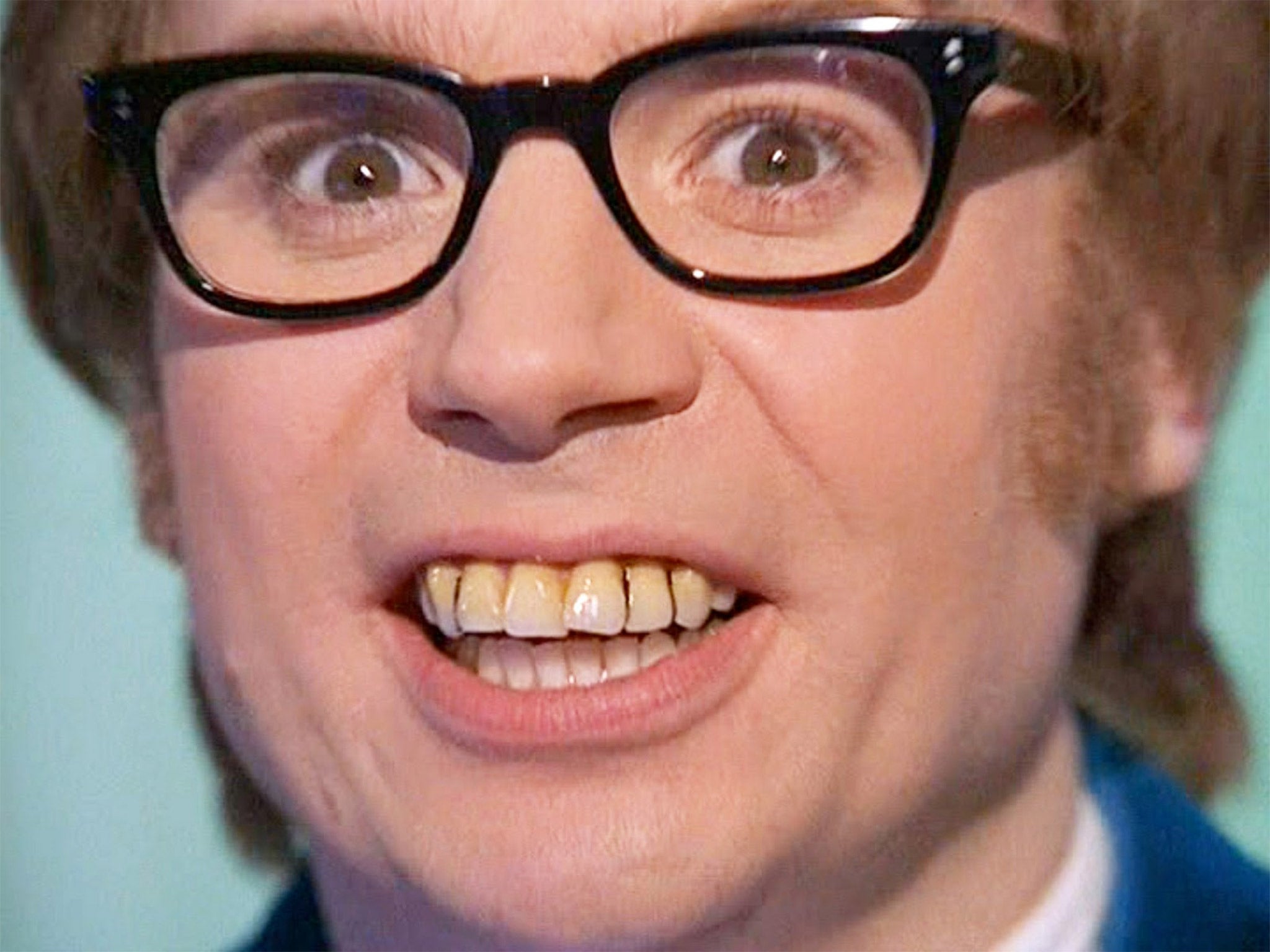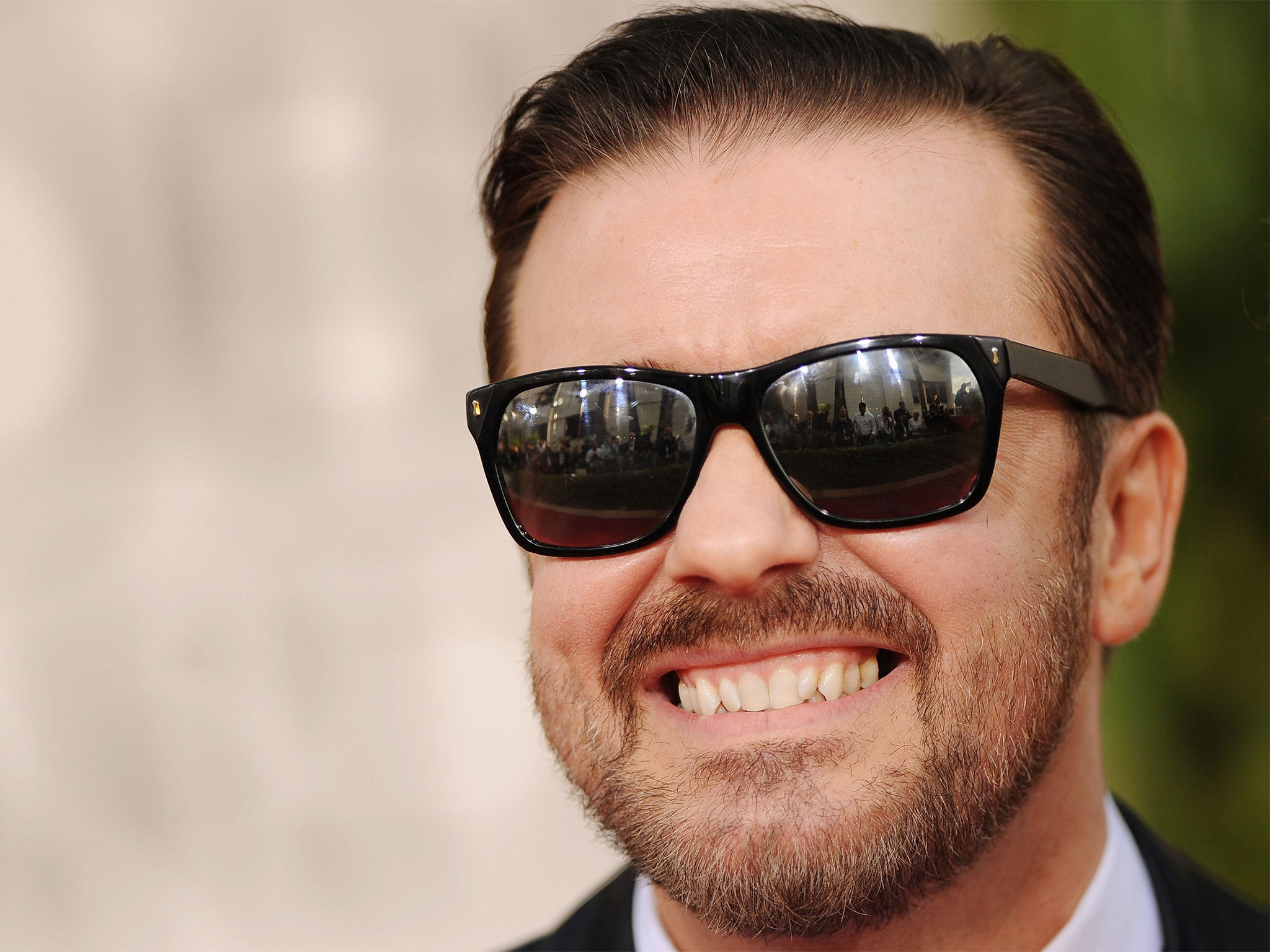British people have no worse teeth than Americans, study says
Study entitled 'Austin Powers bites back' finds that, in some respects, Britons actually have better dental health

If there is one thing that separates the British from the Americans in the popular imagination it is teeth. Their smiles reveal perfectly straight gleaming white pearlers while our mouths are crammed with crooked yellow gnashers.
But now scientists have found that this long-standing joke about the UK’s challenged orthodontistry is a myth.
Research published in the British Medical Journal found that not only is the oral health of British citizens no worse than our American counterparts, it is in some cases better.
The study – entitled “Austin Powers bites back” – looked at the number of missing teeth, respondents’ perceptions of their own oral health, and the impact the quality of their teeth had on daily life – including pain, difficulty eating, and avoiding smiling.
They found that the average number of missing teeth was significantly higher in the US (7.31) than in England (6.97), although British people reported that the state of their teeth had a higher impact on daily life.
British dental 'appreciation'
- The Simpsons: In an episode of The Simpsons, Ralph Wiggum is scared into brushing his teeth properly when a dentist shows him “The Big Book of British Smiles” – complete with photographs of yellowing and even bloodied teeth.
- Austin Powers: That most British of spies, Austin Powers, wakes from his cryogenic sleep with a set of 1960s pearlers that horrify his US allies. “Since you’ve been frozen there have been fabulous advances in the field of dentistry,” he is told.
- Family Guy: Family Guy is merciless in its mockery of just about everything, and the British are no exception. In an episode called “Chap of the Manor”, set in the UK, the family are portrayed as British. Alongside a full set of stereotypes, the characters have terrible, gap-filled teeth. In another episode, British character Nigel Pinchley is portrayed with a huge overbite.
- The Goldfinch: Donna Tartt’s Pulitzer Prize-winning novel contains an irritating Brit named Everett, who is described as a “goofball” with “bad clothes” and “rabbit teeth”.
Meanwhile, there were greater levels of teeth inequality in the US than in England, with the poorest in America having worse teeth – which the researchers attribute to higher sugar consumption and greater differences in access to treatment and welfare. One “notable difference” was that dentistry in the UK is largely provided by the NHS.
“We have shown that the oral health of Americans is not better than the English, and there are consistently wider educational and income related oral health inequalities in the US compared with England,” the authors write.
Professor Richard Watt, one of the report’s authors and the head of the Department of Epidemiology and Public Health at University College London, added: “There’s a common belief in Hollywood and the media generally that Americans have perfect teeth. But we found that inequality between rich and the poor in the US is much worse than in England. If you’re rich in the US you’ve got nice white straight teeth, but if you’re poor your chances of good oral health are much lower.”
The British have been the butt of dental jokes for at least half a century, sent up for the benefit of US audiences by The Simpsons, Austin Powers, Family Guy and more.

When Ricky Gervais launched his film Ghost Town in 2008 he was complimented by an American journalist on being prepared to wear such an awful set of false teeth – even though he wasn’t.
“He was horrified that I could have such horrible real teeth,” Gervais said. “It’s like the biggest difference between the Brits and the Americans, they are obsessed with perfect teeth.”
Many date the malign reputation to US soldiers returning from England after the war with horror stories of pre-NHS smiles. Professor Watt said the study is the first of its kind, but conceded it may not put paid to the long-standing joke about British teeth. “I’m not sure it will completely dispel the myth,” he says, “perhaps it’s a start.”
Join our commenting forum
Join thought-provoking conversations, follow other Independent readers and see their replies
Comments
Bookmark popover
Removed from bookmarks